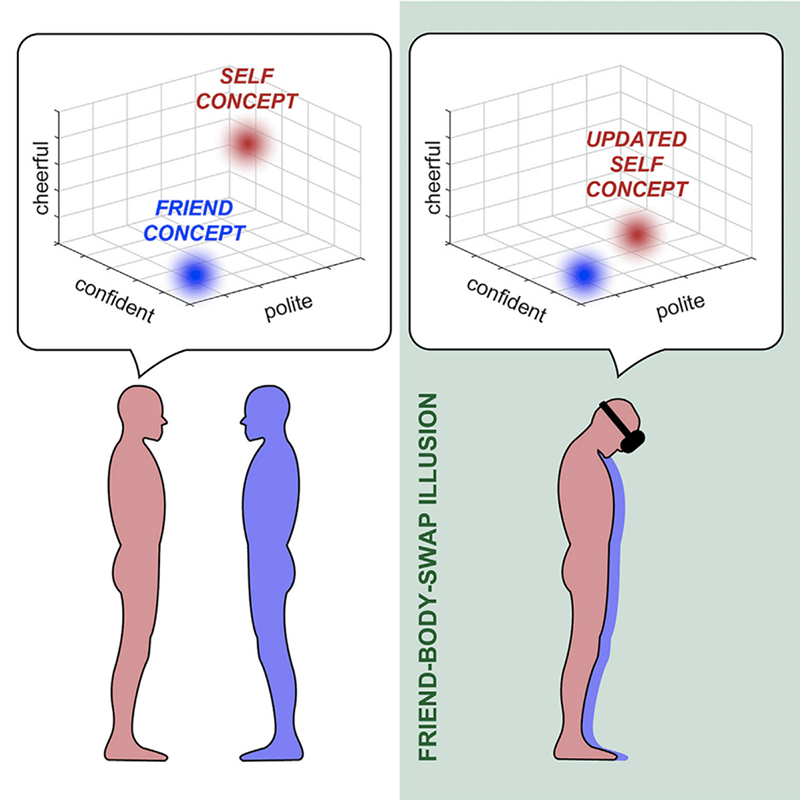Products You May Like
Spend some time in someone else’s body, and your sense of self and your memory starts to shift, new research shows – almost as if your brain is adapting to better fit its new form. It’s a fascinating insight into the link between the physical and the psychological.
Researchers haven’t actually worked out how to carry out a real physical ‘body swap’ – not yet – but in this case, 33 pairs of friends were able to virtually swap bodies using headsets. As they looked round, they saw themselves in their friend’s body.
The experiments only ran for a few minutes, but they showed that the pals very quickly felt like they were inhabiting each other’s bodies – when one of the pair was threatened with a prop knife, the other would tend to break out in a sweat.
What’s more, based on questions asked before and during the tests, participants quickly began to feel more like their friends rather than themselves, in measures such as talkativeness, cheerfulness, independence, and confidence.
“We show that the self-concept has the potential to change really quickly, which brings us to some potentially interesting practical implications,” says neuroscientist Pawel Tacikowski from the Karolinska Institutet in Sweden.
“People who suffer from depression often have very rigid and negative beliefs about themselves that can be devastating to their everyday functioning. If you change this illusion slightly, it could potentially make those beliefs less rigid and less negative.”
Several depersonalisation disorders, where there’s a disconnect between the mental state and the physical body, could be better understood by the findings, the researchers think.
The experiments also showed effects on memory too: participants performed worse in episodic memory tests once they had taken part in the body swapping exercise. It’s almost as if our memories fade as our sense of self does.
 (Pawel Tacikowski et al, iScience 2020)
(Pawel Tacikowski et al, iScience 2020)
“There is a well-established finding that people are better at remembering things that are related to themselves,” says Tacikowski. “So, we thought if we interfered with one’s self-representation during the illusion, that should generally decrease their memory performance.”
The researchers note that the people who more fully embraced the body switch – the ones whose self-perception shifted the most significantly towards that of their friends – did better in the memory tests.
That could be because their “self-incoherence” was lower, say the researchers. In other words, there was less of a gap between the sense of self and the physical body – even if that sense of self and physical body had switched. This incoherence appears to interfere with how we encode episodic memories.
The study raises all sorts of interesting questions about how much our sense of self is based on our perceptions of the body that we inhabit – not least because that body changes and ages over time, which has to have psychological consequences too.
There’s plenty of more research to be done here to investigate the physical and psychological, covering a broader range of people over a longer period of time. But now we know at least a little more how a real-life version of Freaky Friday might play out.
“As a child, I liked to imagine what it would be like to one day wake up in someone else’s body,” says Tacikowski. “Many kids probably have those fantasies, and I guess I’ve never grown out of it – I just turned it into my job.”
The research has been published in iScience.
